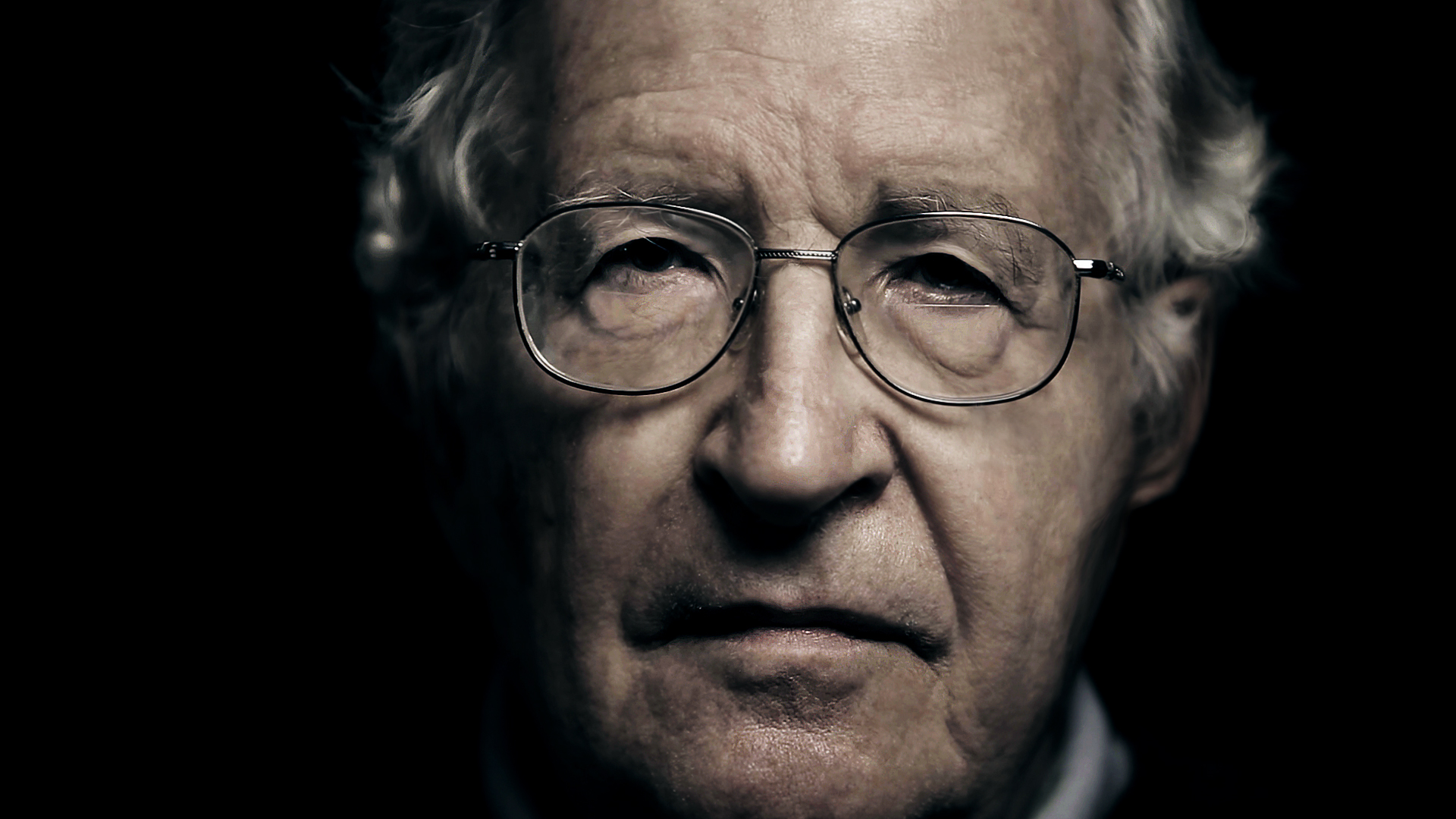By: Shahbaz Khayambashi
Requiem for the American Dream does not have anything new to say if the viewer is familiar with Noam Chomsky’s ideas, but watching one of our greatest minds speak is always a treat.
Requiem is basically a feature-length lecture, where Dr. Chomsky discusses his ten principles of concentration of wealth and power in detail, visualized entirely with either close-up shots of Chomsky or a series of Adam Curtis-style montages to further illustrate the point. The documentary, at its base, has very little to offer, other than a documentation of Chomsky’s ideology, potentially his last documentary.
The power of this documentary lies elsewhere, with the term “Requiem” from the title serving an ominous purpose: this film is certainly a requiem for the American dream, and America itself, but it is also a requiem of sorts for Chomsky. The film is, ideologically, about the failures of capitalism and these failings are shown rather obviously (obvious to anyone willing to actually listen, at least). These ideas were put forth long ago and they should be dated by now, but every single contention continues to be relevant today, with the American society continuing its unabated ride towards capitalist ruin, placing aside the American dream with the realization that we live in a world where a corporation has more human rights than an illegal immigrant and that the bootstraps method no longer works – if it ever did.
The requiem for Chomsky comes almost inadvertently, or at least that is what the filmmakers would probably want the viewer to believe. Again, Chomsky is filmed almost entirely in close-up, his face frequently the focus of the entire frame and, while his mind is sharp and his ideas timely, one can’t help but notice the age upon his face, the wrinkles and the marks accentuating his visage, showing a rather noticeable difference from the young man who haunts the archival sections of the film. This aging process is never placed front and centre, but I refuse to believe that there wasn’t some intentionality to it.
**********
Do You Tweet? Follow These Tweeple:
Shahbaz Khayambashi: @Shakhayam





Be the first to comment